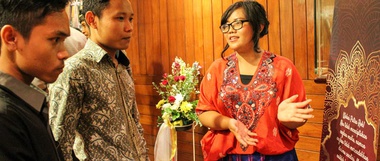The recognition of significant historical milestones often transcends cultural and national boundaries, fostering a spirit of unity and reflection. In the case of Baha’u’llah’s bicentenary, this global celebration is not merely a commemoration of an individual’s life; rather, it signifies a profound recognition of the values that he espoused—a universal peace, the oneness of humanity, and the harmonization of science and religion. The acknowledgment by governments worldwide serves not only to honor Baha’u’llah but also to stimulate a paradigm shift in how we understand spirituality and its relation to global governance.
Baha’u’llah, the founder of the Baha’i Faith, proclaimed a new vision for humanity during the mid-19th century, a time marked by stark division and conflict. His teachings emanate a strikingly progressive outlook on societal well-being, advocating for equality, justice, and the eradication of prejudice. As nations take steps to recognize his bicentenary, they invite their citizens to engage with these transformative principles, which hold the potential to reshape societal norms and foster a collective consciousness attuned to universal ideals.
The first aspect that warrants attention is the impetus behind this global recognition. Various governments have issued proclamations, resolutions, and official statements acknowledging Baha’u’llah’s bicentenary. This unprecedented gesture reflects an awakening realization within the political sphere—the recognition that spiritual principles can coexist with and even bolster secular governance. As scientists grapple with the ever-pressing issues of climate change, social justice, and human rights, Baha’u’llah’s teachings present a framework that resonates with contemporary challenges.
Governments are increasingly pressed to cultivate a worldview that integrates varying cultural and spiritual paradigms. By recognizing Baha’u’llah, they underscore the importance of dialogue among civilizations, thereby cultivating an environment conducive to collaboration and peace. In this sense, the celebration is more than a mere acknowledgment; it functions as a clarion call for a collective awakening among citizens and policymakers alike. The principles articulated by Baha’u’llah advocate for the establishment of a world community grounded in compassion and understanding, transcending the limitations imposed by historical and cultural legacies.
The prominence of the bicentenary celebrations is further emphasized through the outreach of Baha’i communities across the globe. In many countries, Baha’is organized events ranging from educational panels and artistic performances to interfaith dialogues, effectively creating a nexus for people from diverse backgrounds. This level of engagement is crucial as it piques curiosity and draws individuals into the spiritual and philosophical tenets that underpin Baha’u’llah’s teachings. Here lies a transformative opportunity: as governments participate in this celebration, they embrace an ethos that encourages citizens to explore the teachings of Baha’u’llah, inviting individuals to reflect on their own beliefs while simultaneously learning about others.
The celebration’s broader implications for global governance cannot be understated. As various administrations acknowledge the bicentenary, they inadvertently create a platform for discussions around human dignity, cooperation, and interconnectedness. Such dialogues are pivotal in an era characterized by division and discord, where societies often find themselves polarized on ideological divides. In acknowledging Baha’u’llah’s principles of unity and equity, governments subtly advocate for policies that may lead to a more harmonious coexistence. Policymakers must grasp this moment to imbue their leadership with the moral imperatives that the Baha’i teachings propagate.
Moreover, this recognition signals a departure from traditional secularism—an acknowledgment that values and ethics drawn from spirituality can inform public policy and civic life. It is vital to discern that the recognition of Baha’u’llah’s bicentenary is not a call to religious uniformity but rather an invitation to recognize the shared moral foundations that can govern humanitarian efforts. This necessitates engaging citizens in conversations on morality, ethics, and the social contract that binds them as members of the same global community.
As Baha’u’llah himself stated, “The earth is but one country, and mankind its citizens.” This axiom is more relevant today than ever, presenting a tangible framework for global citizenship. As governments recognize the bicentenary, they also endorse a vision for a future replete with shared aspirations and collective goals. It prompts stakeholders from all sectors—education, health, and environmental sustainability—to rethink their approach to partnerships and collaborations.
Simultaneously, the celebration acts as a catalyst for academic inquiry and scholarship. It piques the curiosity of researchers and scholars interested in exploring the intersection between spirituality and public policy. Numerous institutions may now take the opportunity to delve into the records of Baha’u’llah’s teachings, critically examining how these principles can be incorporated into contemporary discourse on governance and social practices. Such investigations may yield rich insights that further illuminate the potential for spiritual principles to foster comprehensive frameworks for peace and collaboration.
Finally, as we reflect on the global recognition of Baha’u’llah’s bicentenary, it is imperative to invite a consciousness that embraces the ideals of unity, peace, and justice. This celebration is more than just commemorating a historical figure; it encourages individuals to cultivate a sense of responsibility for the betterment of humanity. The call to action embedded in this observance holds the promise of a more unified global future, urging individuals and leaders alike to foster a deeper understanding of the essence of humanity transcending cultural, national, and spiritual divides.
In conclusion, the commemorative events surrounding Baha’u’llah’s bicentenary propel a reciprocal relationship between government acknowledgment and citizen engagement. Together, they facilitate a discourse that champions collective aspirations for peace, justice, and the enhancement of human dignity. As recognition transforms into actionable insights, a new narrative emerges—one where spiritual principles inform the path of governance, rendering the celebration a pivotal moment of transformation in contemporary society.
